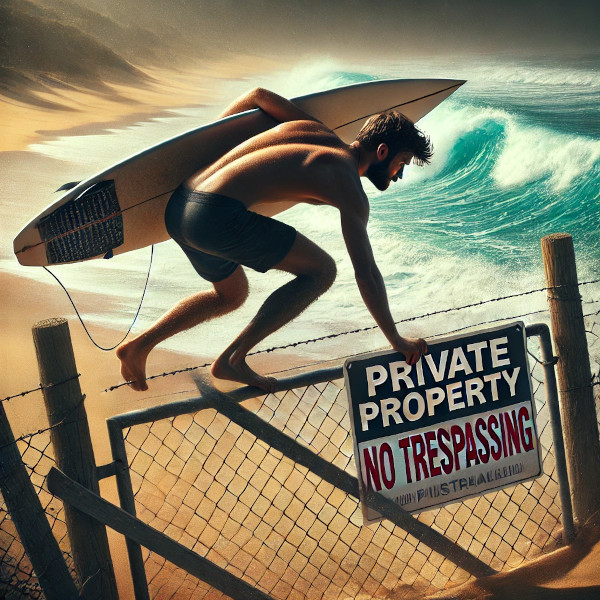A surfer seeks the perfect wave beyond fences and locked gates. The ocean calls but the land blocks the way. Some surf spots are hidden behind private property.
Trespassing laws in Melbourne can be strict for those who ignore them. A surfer who crosses private land without permission may need a Melbourne Criminal Lawyer to defend themselves from charges. Some landowners enforce their rights aggressively through security patrols and cameras.
Police can charge trespassers if landowners file a complaint. A surfer caught inside a restricted area may be arrested. A criminal record can result from a simple mistake.
A lawyer is essential when facing trespassing charges in court. The legal process is complex and penalties can be severe. Some cases carry fines while others may lead to jail.
A good lawyer will first examine the details of the case. They will check if proper signs were in place at the location. They will investigate whether the landowner has a legal right to restrict access.
A lawyer may argue that the land was not properly marked. Some cases hinge on whether the surfer knew the area was private. If there were no clear signs a defense can be built.
In some cases public access rights may override private claims. Coastal access laws sometimes protect traditional pathways to the beach. A lawyer can research historical records to prove public entry rights.
If a surfer had no intent to commit harm this may reduce charges. A Melbourne lawyer can argue that the surfer believed the land was public. The court considers whether the act was deliberate or accidental.
Negotiation is a key strategy in trespassing cases. A lawyer can speak with the prosecution before the trial begins. Some charges can be dropped through discussions and legal arguments.
If the landowner agrees a case may be resolved without a conviction. A surfer might avoid a criminal record through a formal apology. The lawyer works to reduce penalties and protect future rights.
Community service may replace harsher legal consequences in some cases. A lawyer can propose alternative punishments to avoid jail time. Some courts prefer rehabilitation over strict penalties for minor offenses.
A strong defense can challenge whether an arrest was lawful. If police acted improperly the charges might not stand. A lawyer examines police conduct and legal procedures.
Surfers facing trespassing charges should avoid speaking to police without a lawyer. Anything said during questioning may be used in court. Legal advice ensures the best possible outcome in criminal cases.
Media attention can complicate high-profile trespassing incidents. Some landowners use publicity to discourage future access attempts. A lawyer helps control public statements to prevent additional legal risks.
A case may go to trial if no agreement is reached. A lawyer presents evidence before a judge to challenge the prosecution. Witnesses can testify to confirm the surfer’s version of events.
Public sentiment sometimes influences legal decisions in access disputes. A lawyer may gather community support to highlight fairness issues. Public access to beaches is an important legal and environmental concern.
If a conviction occurs an appeal may still be possible. A lawyer can argue for reduced sentencing if the penalty is too harsh. Some convictions can be overturned with new evidence or legal arguments.
A criminal record affects future travel work and personal freedom. A lawyer helps minimize long-term consequences for those charged with trespassing. Protecting a surfer’s reputation is as important as winning the case.
Legal knowledge is essential for anyone challenging beach access restrictions. Trespassing laws exist but so do public rights to enjoy the ocean. A surfer who understands the law can avoid unnecessary legal trouble.


Leave a Reply